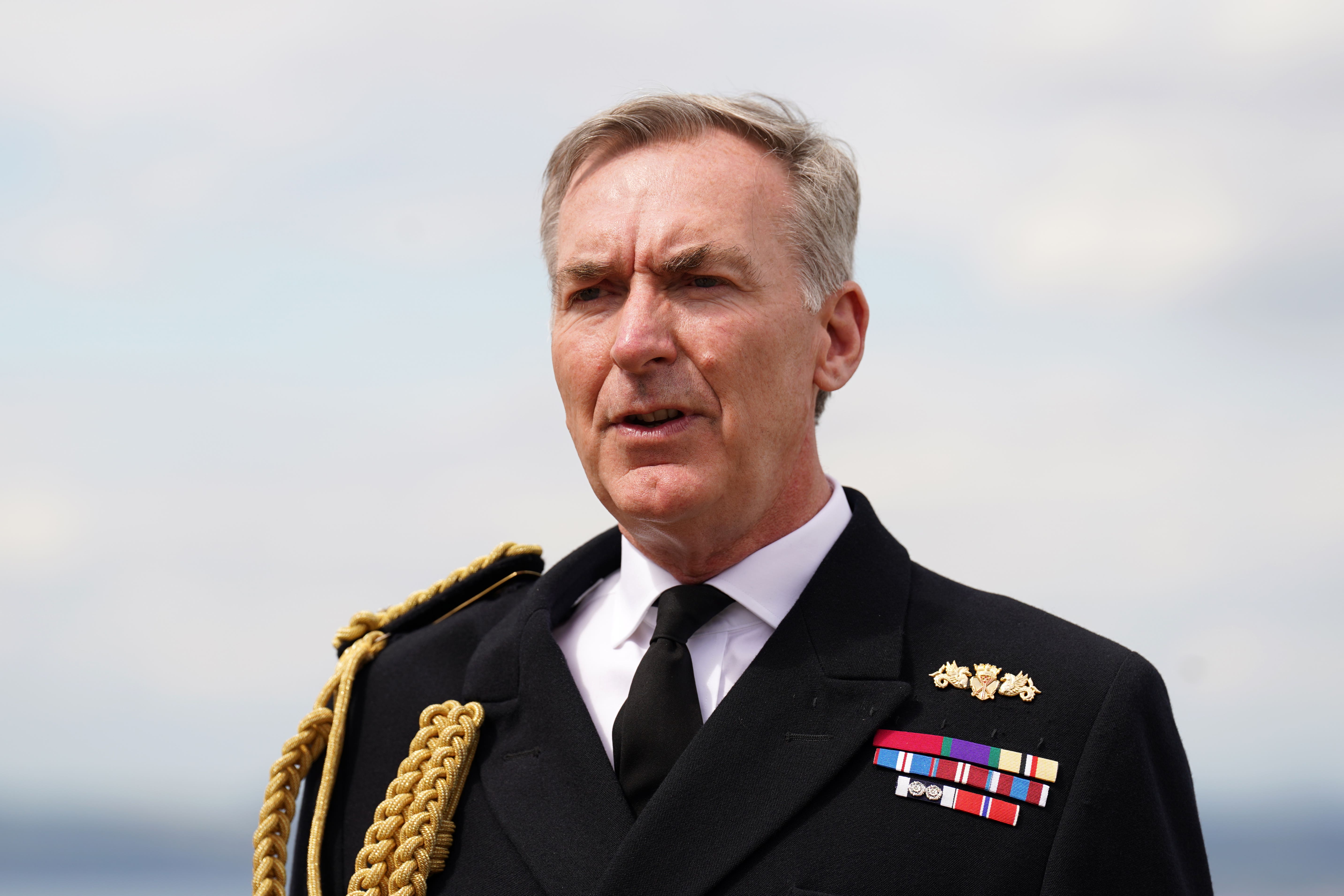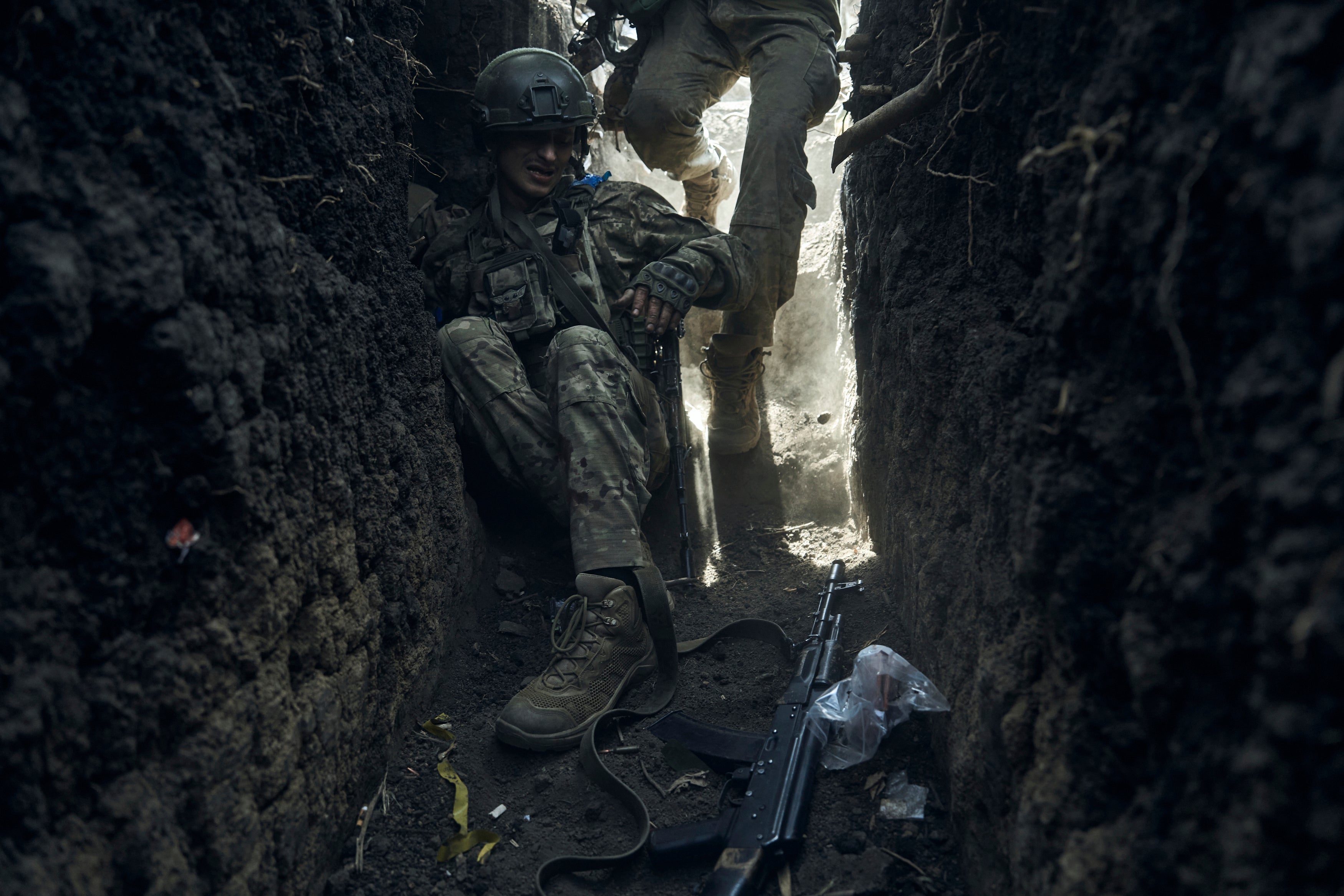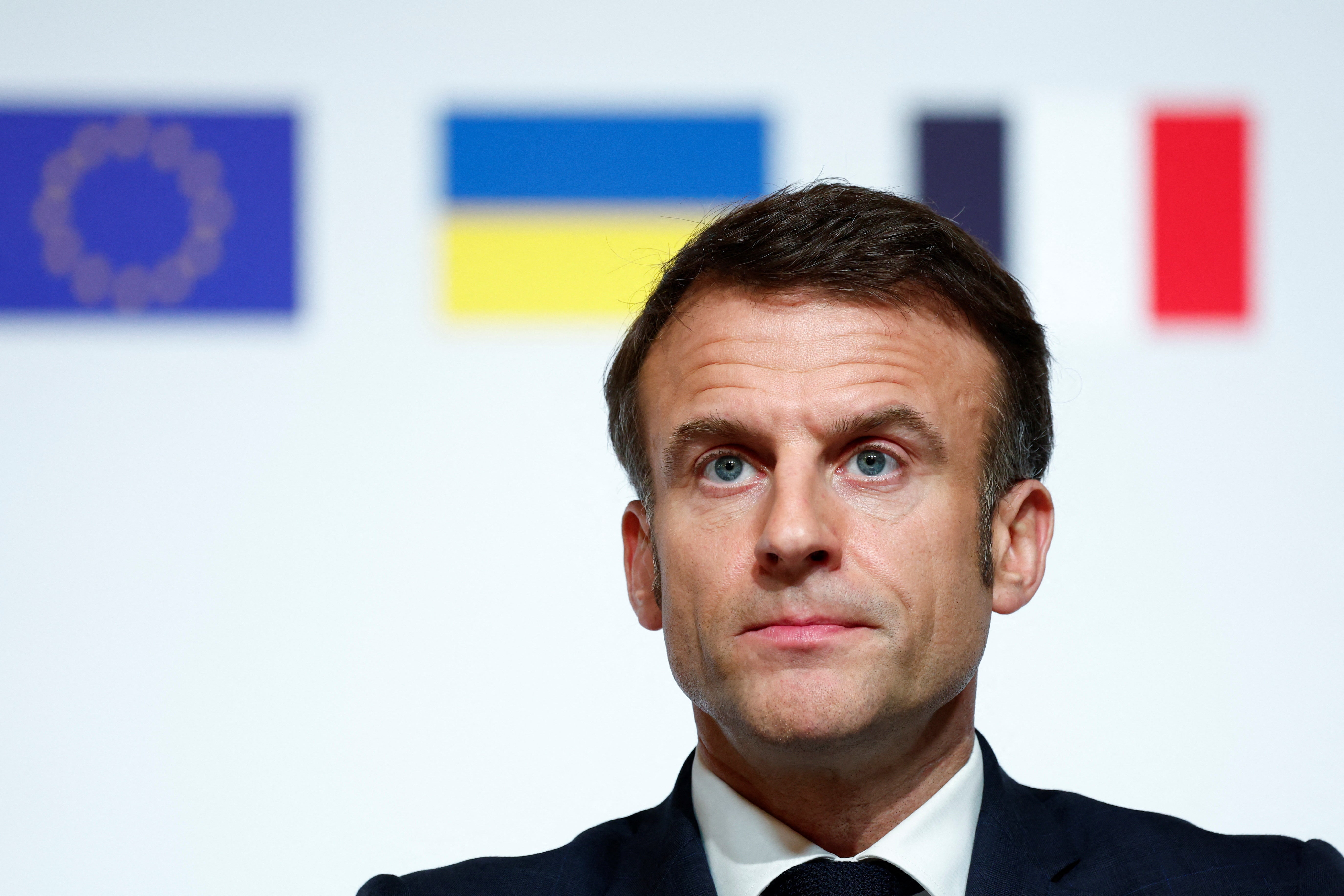British military chief issues stark warning to Russia over any assault on Nato
Admiral Sir Antony Radakin, the chief of defence staff, will not be drawn on suggestions from Emmanual Macron that France will not rule out boots on the ground in Ukraine, writes Kim Sengupta, but he acknowledges Ukraine is facing a tough time thanks to ammunition shortages that will last months


Vladimir Putin remains the most relentless foe Nato faces, the head of the British military has declared, laying out what could unfold if war broke out between Russia and the Western alliance.
Admiral Sir Antony Radakin acknowledged that Ukraine is facing a “tough time” with a major shortage in crucial supplies of ammunition which will “last at least several months” at a critical time in the conflict.
However, speaking at the Chatham House think tank in London, the chief of defence staff refused to be drawn on the controversy which has erupted within Nato after the suggestion that member states send troops to help Ukraine as it tries to hold off Moscow’s advances.
Emmanuel Macron laid out the prospect of boots on the ground while hosting an international meeting on ways to help Volodymyr Zelensky’s increasingly beleaguered government.
“There is no consensus to officially back any ground troops. That said, nothing should be excluded. We will do everything that we can to make sure that Russia does not prevail,” said the French president.
He pointed out how much Western military assistance has grown in lethality since the start of the invasion two years ago, with long-range missiles and artillery being dispatched and Kyiv due to receive American F-16 warplanes. He said: “People used to say give them just sleeping bags and helmets. We must do whatever we can to obtain our objective”.
Macron has been accused of being an appeaser for proposing in the past that Putin is offered a way to end the conflict without losing too much face. "We must not humiliate Russia so that the day when the fighting stops we can build an exit ramp through diplomatic means…. I am convinced that it is France's role to be a mediating power,” he said in 2022.

Ukraine's Foreign Minister Dmytro Kuleba countered at the time that “calls to avoid humiliation of Russia can only humiliate France and every other country that would call for it.” Marko Mihkelson, the head of the foreign affairs commission in the Estonian parliament said: “the French president is still looking for ways to save war criminal Putin from humiliation”. The former US ambassador to Moscow, Michael McFaul commented: "Putin will only negotiate when his army can't keep marching forward, humiliated or not. Macron should focus on creating that condition”.
The French president’s views appear to have been transformed since then. Russia, he said on Monday, “cannot win this war. It is the sole aggressor. It is the sole country that instigated this war. Russia is now clearly affecting our own safety and security through both traditional and hybrid war.”
This was the first time that sending troops to confront Russia in this war in the heart of Europe has been publicly raised by a Nato head of state – one of the most senior ones in the Alliance at that – and it drew immediate reaction from allies and the main adversary.
In London. a spokesperson for Rishi Sunak said his government had no plans for a large-scale military deployment to Ukraine, beyond the small number of personnel already training Ukrainian forces. Germany, Sweden, Poland and the Czech Republic also moved swiftly to rule out being part of a Nato expeditionary force.
The Kremlin seized on Macron’s remarks, with chief spokesperson Dmitry Peskov saying it was "a very important new element" adding “we would need to talk not about the probability, but about the inevitability [of direct conflict]" in the light of what was being proposed.

France's own foreign minister also sought to clarify the comments made by Macron that Paris could send troops to Ukraine for specific needs, but not to fight in the war against Russia. "We must consider new actions to support Ukraine. These must respond to very specific needs, I am thinking in particular of mine clearance, cyber defence, the production of weapons on site, on Ukrainian territory," Stephane Sejourne said. "Some of its actions could require a presence on Ukrainian territory, without crossing the threshold of fighting. Nothing should be ruled out. This was and still is the position today of the president of the Republic."
In the US, right-wing Republicans who have been hostile to the widespread support for Ukraine by Joe Biden’s administration are also likely to portray the call for deployment as an example of European warmongering.
Donald Trump, accused of being the Muscovian candidate by his critics when in the White House, now certain to win the Republican nomination for the US presidential election, has called on Republican members of Congress to keep blocking a vital $95bn (£75bn) package of economic and military aid package for Ukraine and other US allies.
No ammunition has come from the US to Ukraine since the turn of the year. Meanwhile the European Union could only deliver just half of a million rounds it pledged to Kyiv by March. It will not be able to meet the target amount, according to Western officials, for another seven months.
Admiral Radakin said that while Kyiv has had successes at sea it faces “a much tougher situation on land where Ukraine is struggling in terms of its ammunition, and its stockpiles… I think that's a predicament that's likely to last them at least for the next few months.”
Nato countries will continue to be ready for Russan aggression, said the chief of defence staff. He warned the Kremlin that “any Russian assault or incursion against Nato would prompt an overwhelming response.

“Thousands of allied troops currently stationed in Poland and the Baltic states could draw on the 3.5 million uniformed personnel across the Alliance for reinforcement. Nato’s combat air forces – which outnumber Russia’s three to one – would quickly establish air superiority. Nato’s maritime forces would bottle up the Russian Navy in the Barents and the Baltic, just as Ukraine pushed the Black Sea Fleet from occupied Crimea.
“Nato has four times as many ships and three times as many submarines as Russia. Britain would be at the heart of this response, contributing 25 per cent of alliance strength at sea, and 10 per cent of land and air, plus our cyber and space capabilities, and our Special Forces.
"This is an alliance that is becoming stronger all the time…with a collective GDP twenty times greater than Russia, and a total defence budget three and-a-half times more than Russia and China combined.”
This may reassure citizens of Nato states, but Ukraine is not a member and, while facing the hugely debilitating munition shortfall, awaits a probable Russian offensive in the summer.
Emmanuel Macron’s proposal for Western forces to be sent may not be getting traction at present, but the call to arms may well come again if the situation in the battlefield becomes dire.






Join our commenting forum
Join thought-provoking conversations, follow other Independent readers and see their replies
Comments